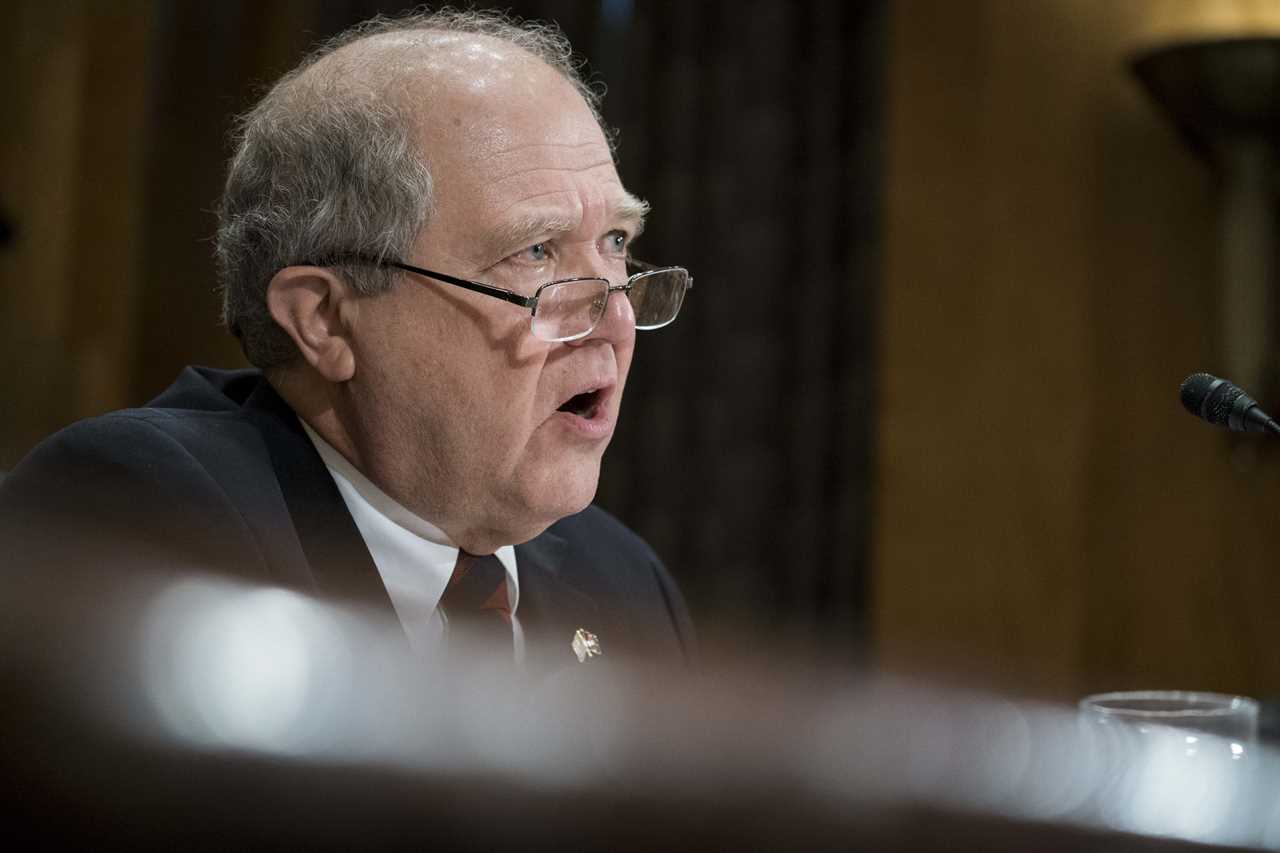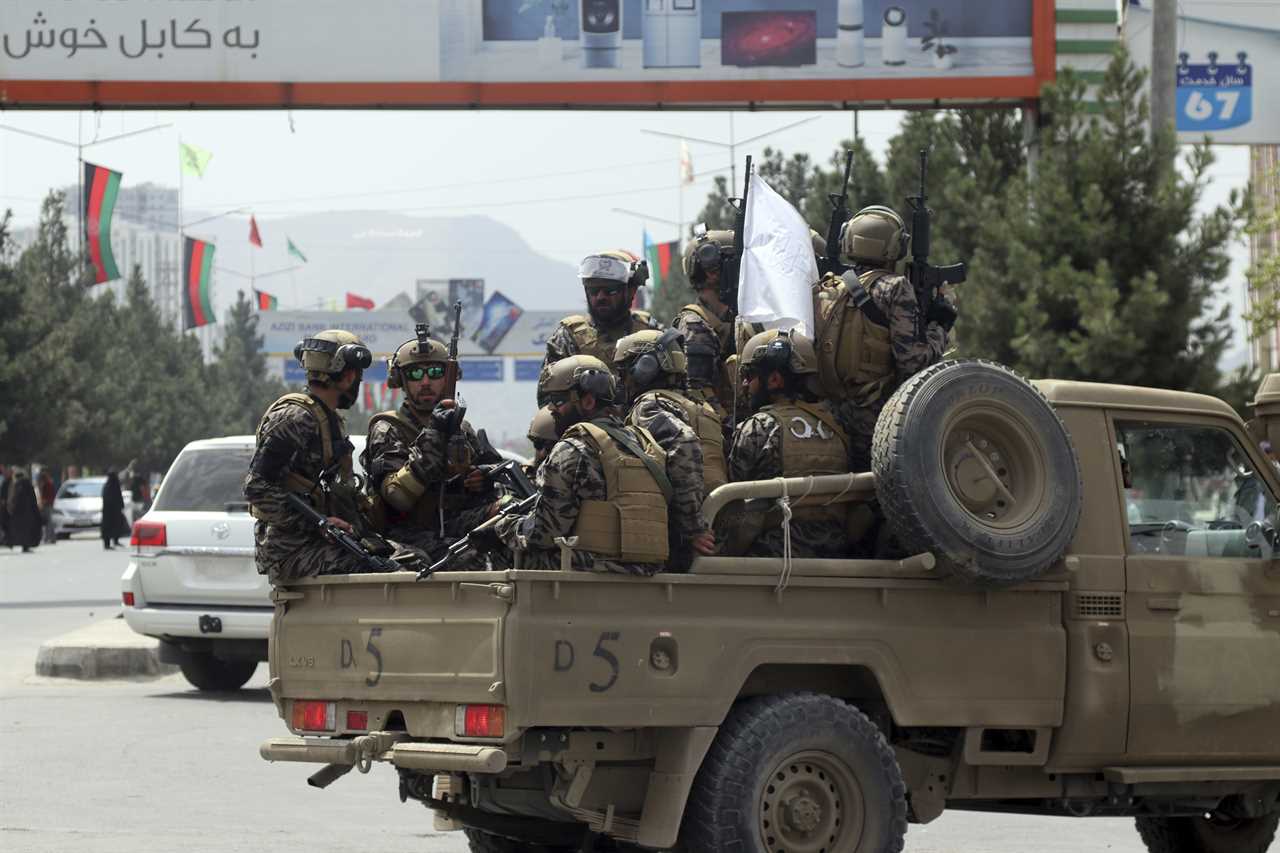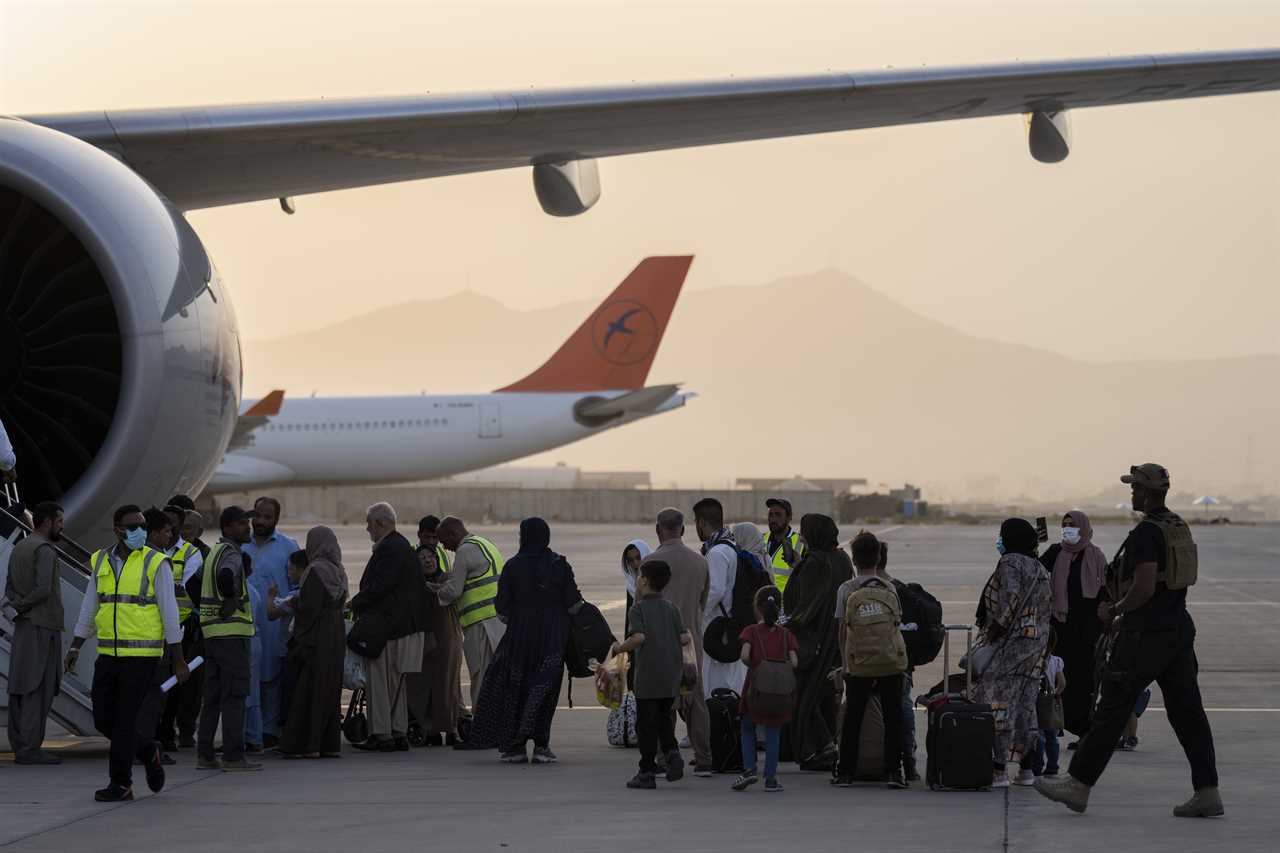
John Sopko has been the bearer of bad news in Afghanistan for nearly 10 years. So when President Ashraf Ghani’s government collapsed in August 2021, the special inspector general for Afghanistan reconstruction was not surprised, he told POLITICO in an interview.
Sopko’s team, charged by Congress with providing independent oversight of the U.S. mission in Afghanistan, repeatedly warned in quarterly reports leading up to Kabul’s fall of significant challenges facing the Afghan national defense and security forces. Due to its dependence on the U.S. military and contractors, the decision to withdraw this support destroyed the Afghan military’s morale.
Once the decision was made to pull the last Americans from Afghanistan, collapse was “inevitable,” Sopko said.
“There was a red light blinking on Afghanistan for years saying ‘watch out,’” Sopko said. “Once the morale collapsed, that was it.”
Sopko’s latest interim report, out Wednesday, is the first U.S. government report on how and why the Afghan security force crumbled — and it pulls no punches. The report unequivocally calls out former President Donald Trump and President Joe Biden for their decisions to withdraw U.S. military and critical contractor support from Afghanistan, calling this “the single most important factor” in the military’s collapse.
“We built that army to run on contractor support. Without it, it can’t function. Game over,” one former U.S. commander in Afghanistan told Sopko’s office, according to the report. “When the contractors pulled out, it was like we pulled all the sticks out of the Jenga pile and expected it to stay up.”
The IG offered the Pentagon, State Department and U.S. Agency for International Development the opportunity to review and comment on the interim report. The Pentagon provided verbal comments, some of which the IG incorporated into the report. The State Department declined to comment and USAID did not provide comments.

The U.S.-Taliban agreement under Trump and subsequent announcement that the U.S. military would withdraw by May 2021 had a devastating effect on the Afghan military’s morale and was a “catalyst” for its collapse, the report states. One former Afghan commander told the IG that the agreement’s “psychological impact” was such that many soldiers “switched to survival mode.”
The release of 5,000 Taliban fighters in the summer and fall of 2020 further demoralized the Afghan military and helped regenerate the Taliban’s combat power, according to the report.
“We tend to think of the Afghan military as, ‘Oh, they didn’t do any fighting,’” Sopko told POLITICO. “No — a lot of them fought and died.”
The withdrawal agreement, parts of which “are believed to be contained in secret written and verbal agreements between U.S. and Taliban envoys,” introduced “tremendous uncertainty” into the U.S.-Afghan relationship, the report states. Afghan government officials were largely removed from the negotiations and struggled to understand its stipulations. The U.S. military never clearly communicated the specifics of its policy changes to the Ghani administration or army leadership, Afghan officials told Sopko’s office.
“The Taliban’s operations and tactics, however, suggested that they may have had a better understanding of new U.S. levels of support the United States was willing to provide to the ANDSF following the signing of the U.S.-Taliban agreement,” the report states.
The Taliban “weaponized” the vacuum created by the lack of information, claiming they had a secret deal with the United States “for certain districts or provinces to be surrendered to them,” according to the report. This led many police officers, who had not been paid for months, to abandon their posts, which started “a cascading effect” and led to soldiers fleeing as well.
“As much as I hate giving the Taliban any credit for anything … they did a fantastic psychological operation against the poor soldiers who are out there in the field, who haven’t seen their pay, haven’t seen any weapons or air support for weeks,” Sopko said.
Another crucial factor that contributed to low morale was the decision to suddenly reduce the number of U.S. airstrikes supporting the Afghan military, the report says. The United States conducted 7,423 airstrikes in 2019 — the most since at least 2009. But the next year the number of airstrikes dropped to 1,631, with almost half occurring in the two months before the U.S.-Taliban agreement.
“Overnight … 98 percent of U.S. airstrikes had ceased,” a former commander of Afghanistan’s Joint Special Operations Command told Sopko’s office.

The report notes that “under the U.S.-Taliban agreement’s rules, U.S. aircraft could not target the Taliban groups that were waiting more than 500 meters away—the groups ‘beyond the contact’ that would engage in the second, third, or fourth wave to defeat the last ANDSF units.” A senior Afghan official told investigators this was “a loophole that the Taliban used in their targeting to their advantage.”
On the ground, Afghan troops never knew if or when U.S. forces would come to their defense. One former Afghan general told the IG that the U.S. military “took on the role of a referee and watched” the fight, something the general referred to as “a sick game.”
Low salaries, poor logistics that led to food, water and ammunition shortages, corrupt commanders who “colluded with contractors to skim off food and fuel contracts,” and “lack of ANDSF buy-in with the Afghan central government” all contributed to the “morale crisis,” according to the report.
The report also highlights the effect of Biden’s April 2021 withdrawal announcement on Ghani’s government. One senior Afghan official told the IG that it was not until that declaration that Ghani’s inner circle realized the army “had no supply and logistics capability.”
The decision to withdraw on-site contract maintenance beginning in May 2021 led to a cascade of problems, including reducing aircraft availability. The Afghan security forces had stockpiles of U.S.-provided weapons and supplies “but did not have the logistics capability” to quickly move them.
Sopko’s report notes the impact on the fledgling Afghan air force, which had long struggled to sustain itself without U.S. help. The majority of U.S.-made UH-60 Black Hawk helicopters, used for medical evacuations and to transport critical goods and equipment, were grounded shortly after the contractors left following Biden’s announcement, according to the report.
“As a result, Afghan soldiers in isolated bases were running out of ammunition or dying for lack of medical evacuation capabilities,” the report states.
The report further dings the U.S. military for creating a false sense of success among the Afghan security forces. They performed key activities — logistics, intelligence and maintenance, for example — knowing that the Afghans did not have the capability to do these missions alone, according to the report.
“The quest to withdraw from Afghanistan dominated the United States’ military strategy, but the U.S. wanted to ensure the ANDSF had the appearance of success,” the report concludes. “In essence, the U.S. created a false reality with the ANDSF.”
The interim report also delves into what went wrong at the highest levels of the Afghan government. After the U.S.-Taliban agreement, Ghani became paranoid that the U.S. wanted to remove him from power, and feared a military coup, according to the report. In the week before Kabul fell, Ghani replaced many young, U.S.-trained officers with an “old guard of Communist generals” he saw as loyal to him.
“The constant turnover weakened military chains of command, trust, and morale,” the report concludes. “Young, well-trained, educated, and professional ANDSF officers who grew up under U.S. tutelage were marginalized and their ties to the U.S. became a liability.”
Additionally, U.S. government officials, including members of Congress, also reinforced Ghani’s “misperceptions” that the withdrawal announcement was intended to “shape his behavior,” as opposed to being official U.S. policy, according to the IG report.
Overall, Sopko’s office concluded that the U.S. did not have a “realistic understanding” of the time required to build a “self-sustaining security sector,” something that took decades to develop in South Korea.
“Constantly changing and politically driven milestones for U.S. engagement undermined its ability to set realistic goals for building a capable and self-sustaining military and police force,” the report says. “Adapting a decades-long process to an unrealistically short timeline was reminiscent of the U.S. experiences in Vietnam.”
Nahal Toosi contributed to this report.
----------------------------------------
By: Lara Seligman
Title: ‘A red light blinking’: Watchdog thrashes Trump, Biden administrations for Afghanistan failures
Sourced From: www.politico.com/news/2022/05/18/watchdog-trump-biden-afghanistan-failures-00033229
Published Date: Wed, 18 May 2022 03:31:00 EST






